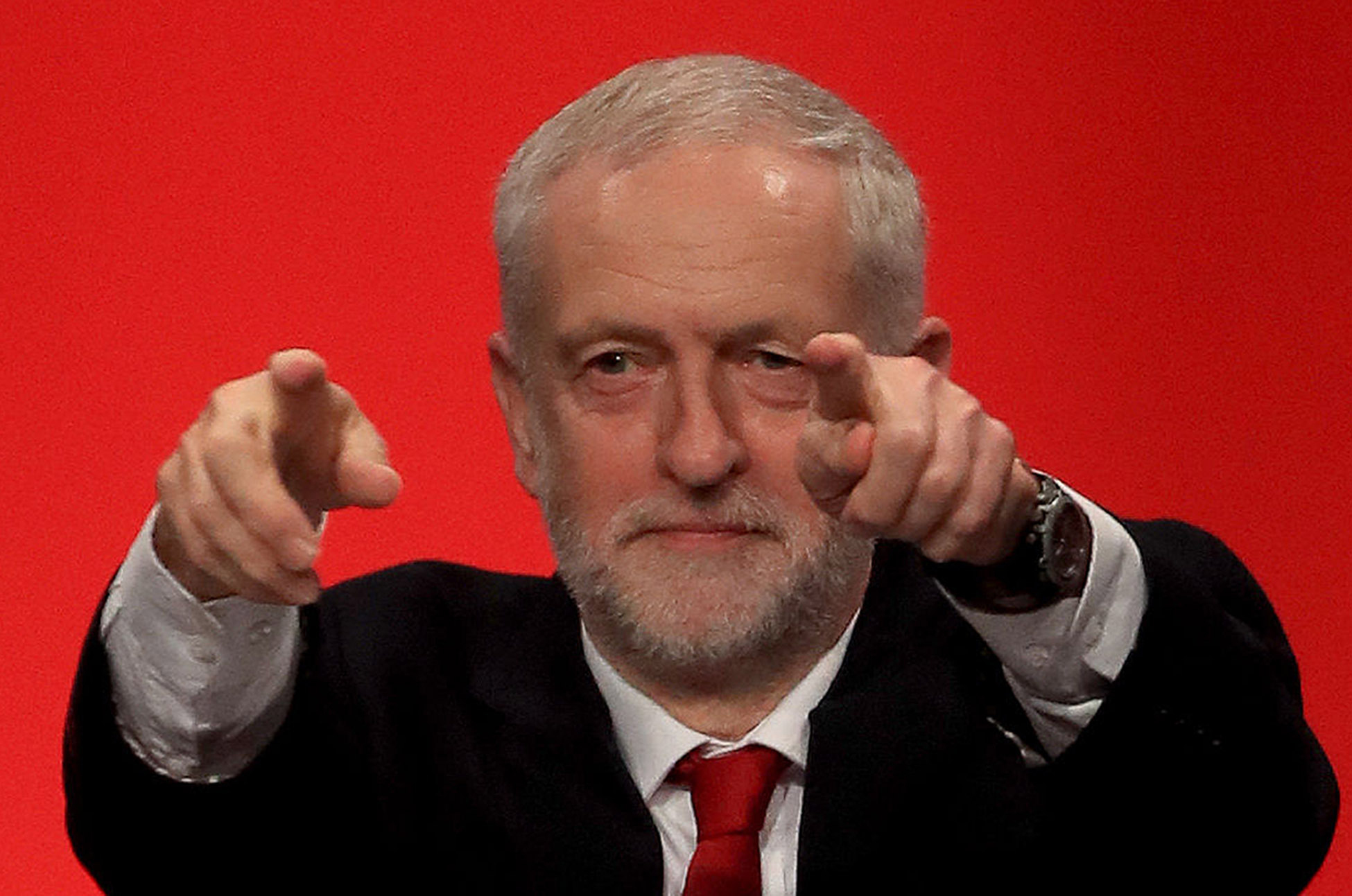You know when you try to recycle but the dump is closed or the bin will take yoghurt pots and not tin cans? That gap between good intention and reality needs a name – let’s call it ‘being Corbyned’.
Jeremy Corbyn gave a good conference speech but the big ideas are old hat. It is a weakness in his message, and presumably the message of his acolyte and leading contender for the post of Scottish Labour leader, Richard Leonard.
I say presumably as for the second week in a row Mr Leonard has chosen not to respond to The Courier’s request for an interview. That isn’t much of a vote of confidence in the many, not the few, who happen to already know him.
Which is odd, given Emily Thornberry’s grand statement that the party will win back the cities from the SNP at the next Westminster election. That will require Mr Leonard to sell what Mr Corbyn called “21st Century socialism”.
What Mr Leonard does have on his side is novelty – not so long ago 50-plus male trade unionists were the archetype of a Labour party hack but now they are the exception.
His campaign projects Mr Leonard as an old ideologue not a visionary for what socialism means now. He’ll probably get the job, but it won’t end well, much as the bubbles from Brighton can only burst.
The problem Labour has is recycling old ideas in the hope they still seem virtuous. Labour have identified a number of a very bad polices and said they will reverse them. At first glance this seems like a good plan – using private finance (PFI) to build public assets stinks like a conference delegate in the early hours, while the privatisation of water utilities was a con from the start.
The private sector never meaningfully took the risk of PFI investments, much as the public water assets were sold off with incentives – that is, the supposed benefit of the ‘market’ was never at play in either instance.
Selling water was a Margaret Thatcher wheeze, but Labour MP Margaret Hodge has revealed that PFI was first cooked up by the Labour councils of London in the 1980s, including people like current shadow chancellor, John McDonnell (the blame is usually put on John Major’s Tory government of 1992-1997).
Labour has now pledged to renationalise England and Wales’ water utilities and to buy out private investors in PFI deals for hospitals and schools.
The problem with both ideas is that while they might right old wrongs, they do so at great expense.
Shadow Chancellor John McDonnell used the phrase “bring back” PFIs, as if they were assets which could be seized from rapacious capitalists, like houses or fancy cars.
They aren’t – they are legal contracts. The state can occupy the PFI school and reject the PFI service staff but it cant ignore the contract.
To date, the only PFI to be bought back was the first scheme – the Skye Bridge – at the stated price of £27 million, double what it cost to build.
If it is a matter of paying 100% over value to buy out all the PFIs then the state is looking at a very big bill indeed – to be added to historic levels of public debt. For such a big buck, you’d expect a large bang in terms of reward but it’s not clear what we’d gain from the exercise.
The state owes billions in PFI payments at the moment – under Labour’s plans, it would just turn that bill into a lump sum, payable in the short term.
Not selling any more utilities and not signing any more PFIs seems sensible but trying to repair the damage already done means directing public money from other policy areas.
In Scotland, a much more pressing need is to provide renewable energy for home heating and transport at a reasonable cost.
Currently the public sector throws cash at private landowners and private companies to generate this energy – why not nationalise that, thus giving us a publicly-owned asset for the benefit of generations to come?
Why not take a fraction of the billions needed to buy out PFIs and set up a housing agency that meets Scotland’s need of around 25,000 houses a year?
According to Mr Corbyn’s speech, what really riles him about water privatisation and PFIs is that the profits go abroad, avoiding tax – so why not just change the tax rules?
There is no doubt that this recycling of old policies is wrapped in good intentions but too much of what has come out from Mr Corbyn’s new Labour – and presumably is part of Mr Leonard’s agenda for Scotland – smacks of old battles. My suspicion is that the cost and complexity of these policies will be defeated by the bureaucracy of government.
There were more ideas in Mr Corbyn’s speech which suggest he is still grappling with what “21st Century socialism” actually means. It’s no easy task to reimagine politics for the age, and Labour is to be admired to trying. Which may explain Mr Leonard’s silence – comfortable with old grievances but insecure on how to fix them.
